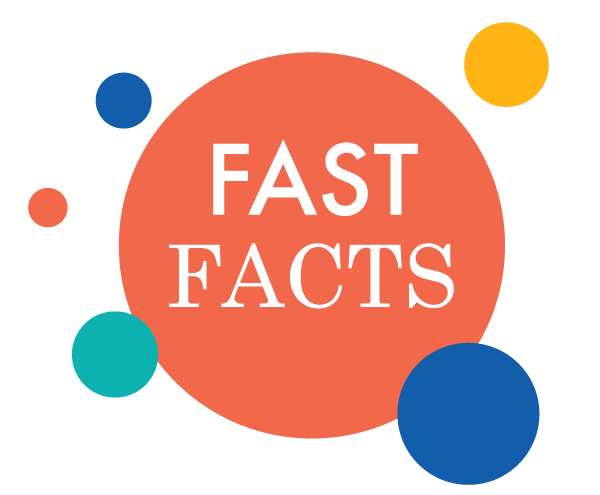How many times have you heard someone say, “It’s genetic”?
Many people know the general meaning of what it means to have a genetic condition — it runs in the family. But the actual process of running in the family is a bit more complex.
Quick Genetics 101 Lesson
The body is made up of trillions of cells. Cells perform many maintenance jobs, such as providing structure for the body, absorbing nutrients from food, and converting nutrients into energy. They are essential for a healthy, functioning body.
Proteins are like construction workers. They’re inside the cell, doing the hard labor. These proteins are built from a set of instructions called DNA. And DNA is held within genes — the “building blocks” of heredity. In this case, heredity is another way of saying a characteristic or condition is genetic and may be passed on from one generation to another.
Sometimes, a gene can have a mutation. This is a change in the gene’s instructions for building proteins, causing a protein to not work correctly, or be missing entirely. When this happens to one or more genes, it may cause a genetic disorder.
Genes are passed down from parent to child, which is why genetic disorders “run in the family.”
Even though genes are passed within families, there is something very important to remember: If your child has a genetic condition, do not feel guilty. You don’t pick which genes you pass on, or which genes will mutate. Some mutations happen because of environmental factors, such as exposure to ultraviolet radiation from the sun. And sometimes, the reason is completely unknown.
Make An Appointment
Phone 402-955-6799 | Fax 402-955-5648
Who Should Come To The Genetics Clinic?
There are many reasons why your child’s physician or your family physician may recommend that you bring your child to the Genetics Clinic.
-
A Suspected Genetic Disorder Or Syndrome
Your child doesn’t need an official diagnosis to come to the Genetics Clinic. How your child is growing and developing physically, socially, and academically may give their physician reason to suspect a genetic disorder.For example, if your child has a delay in language development, a head that is too large, or unusual facial features, the physician may suspect an intellectual disability. If your child avoids eye contact, has trouble making friends, or becomes upset when routines are interrupted, the physician may want to have your child checked for autism.
-
Abnormal Genetic Test Results
In some cases, your child’s physician may order genetic tests before sending them to the Genetics Clinic. Unusual results for your child’s age or stage of development could be signs of a genetic disorder.Some of the tests the physician may order include:
- Chromosome analysis: Chromosomes are structures that contain the DNA. A healthy cell has 23 pairs of chromosomes, for a total of 46. Chromosome analysis checks the size, shape, and number of chromosomes in a sample of cells. Too many, too few, or deformed chromosomes can indicate conditions such as Down syndrome or Turner syndrome.
- DNA microarray: This is a tool used to look at a sample of DNA and determine if it contains certain genes with mutations. A DNA microarray can also show how the body handles certain drugs, so it is sometimes used to decide which medications are the best to prescribe.
-
Developmental Delay And Disability
Kids do not master skills at the exact same pace — it’s normal for a child to begin walking at 9 months old, and it’s also normal for a child to begin at 15 months. But if your child has multiple delays in developing skills, and is continually behind in developing ones that other kids their age have, they may have a developmental delay.A developmental delay can be a sign of a learning or attention disorder. Or, it may be due to something temporary, such as being slow to develop speech due to short-term hearing loss from an ear infection.
Developmental disabilities are a little different. Unlike a delay, a disability is a condition that cannot be outgrown. Depending on the type and severity of disability, your child may have difficulty with physical functioning, behavior, learning, or language. Certain developmental disabilities, such as Down syndrome or Rett syndrome, are considered genetic disorders.
An intellectual disability is a condition that causes below-average intelligence and limited ability to function on a day-to-day basis. Common signs of an intellectual disability include:
- Delayed development of motor, language, or self-help skills
- Lack of curiosity
- Difficulty adjusting to new situations
- Problems with understanding and following social rules
- Difficulty keeping up in school or growing intellectually
- Failure to grow out of infant-like behavior (e.g., tantrums)
-
Multiple Congenital Anomalies
Congenital anomalies are more commonly known as birth defects, and they are often caused by genetic conditions.Birth defects can be either structural or functional. Structural defects are physical problems with body structures themselves. Functional defects are problems with how systems in the body work. For example, a heart with a missing valve is a structural defect, while problems in the brain that cause Down syndrome are functional defects.
Some defects affect several processes or parts of the body, causing problems with both structure and function.
A birth defect can be challenging to manage. And if your child has more than one defect, that challenge can be even greater. The team at Children’s will work with your family to not only manage your child’s medical needs, but also to feel less overwhelmed by your child having multiple birth defects.
-
Multiple Family Members With The Same Genetic Condition
Since genes are passed down from parent to child, it’s common for multiple people in the family to have the same genetic condition.If you have several children, and all but one are showing signs of a genetic condition, it’s important to still have the child who isn’t showing signs see a geneticist. We can spot early signs and symptoms that aren’t always easy to see right away. This allows us to begin treatment or intervention early, and know which conditions they may be at risk of developing in the future.

Genetic testing can help to:
- Diagnose or determine the severity of a disease
- Find which genes and gene mutations are responsible for a disease
- Look for gene mutations that may increase the risk of developing a disease
- Determine the best treatments and medications
- Identify certain gene mutations that may be passed down from parent to child
- Screen newborn infants for treatable genetic conditions
What Sets Children’s Apart?
The Genetics Clinic is a partnership between physicians and genetic counselors at Children’s Nebraska and the University of Nebraska Medical Center (UNMC) Munroe-Meyer Institute. This gives your child access to the knowledge, experience, and expertise of providers from two renowned institutions.
Our faculty is also heavily involved in research, which ensures that your child is always receiving up-to-date, advanced care from top experts in the field. Their areas of interest include:
- Birth defects: Structural changes in the body that are present from birth. They can affect how any part of the body looks, works, or both.
- Intellectual disability: Condition that includes lower-than-average intellectual function, as well as lack of personal care or daily living skills
- Autism: Developmental disorder that affects behavior and communication
- Rare genetic diseases: Rare diseases that are passed down from parent to child
- Enzyme replacement therapy: Replacing missing or low levels of certain enzymes — the substances that cause chemical reactions in the body to help it function correctly
- Multiple congenital anomalies: more than one irregular gene or genetic condition
- Overgrowth syndromes: excessive tissue growth, often causing a child to be overweight or large at birth
Our Specialists
What To Do Next
For Patients
Make An Appointment
Your child will need a referral to come to the Genetics Clinic. If your child’s physician has already sent in a referral or to learn more about the Genetics Clinic, call 402-955-6799 to make an appointment.
For Referring Providers
The Physicians’ Priority Line is your 24-hour link to pediatric specialists at Children’s for emergency and urgent consults, physician-to-physician consults, admissions, and transport services. Call 855-850-KIDS (5437).
Learn more about referring patients.




